How the "celebrities" fell, Ding Ling had written in this novel.

According to the author of the article, he spent 500 yuan to enter a "Shanghai Celebrity" WeChat group, and found that behind the luxurious and top celebrity group, its essence is just a group of advanced Pinduoduo group of young women who are wrapped up in consumption:
From afternoon tea for two in luxury hotels to luxury hotel rooms, to famous cars and bags, and even second-hand stockings worth 600 yuan, they are all in the scope of "spelling orders", and the purpose is only to borrow these items to take decent photos and set up their own "celebrities" on social media.
-Does anyone spell down jackets? I only use it in winter, and you wear it the rest of the time.
-Is anyone working hard? I’ll go on payday, and you can go at other times.
-Is there anyone spelling a lesson? I’ll suffer a little. As long as it’s ten minutes between classes, the rest of the time is yours.

Let’s take a look at Ding Ling’s Dream Ke first. While some "celebrities"/female stars are accustomed to and accept that their images are consumed as objects of desire in the process of modernization, Ding Ling reveals the specific historical and social problems of women’s liberation dilemma and asks how women can find new possibilities for liberation.
Pleasing people with the body is the oldest profession.
"Pleasing people with a beautiful body is the oldest profession in the world, and it is also a very common women’s profession."
-Zhang Ailing
Ding Ling’s short story Meng Ke, published in 1927, tells the story of how Meng Ke, a pure female student who is not lacking in naivety, gradually got used to the gaze of omnipresent desire from her aversion and even resistance to men’s gaze in the city, and finally joined the film industry and became a female star herself.
In the autumn of 1934, Shanghai Liangyou Book Printing Co., Ltd. published a photo collection of China film actresses for eight female stars, including Hu Die, Ruan Lingyu, Wang Renmei, Chen Yanyan, Yuan Meiyun, Ye Qiuxin, Jerry Lai and Xu Lai.
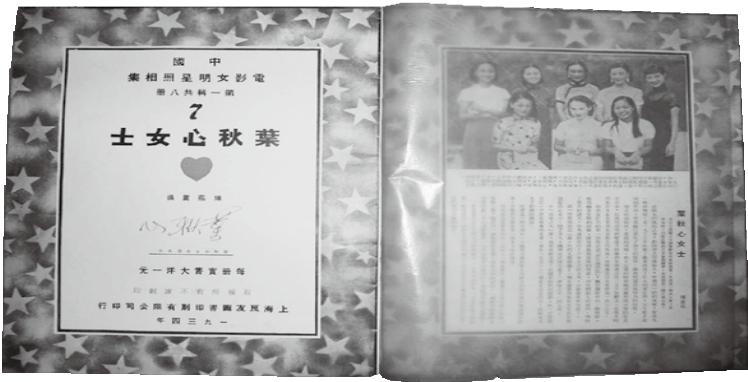
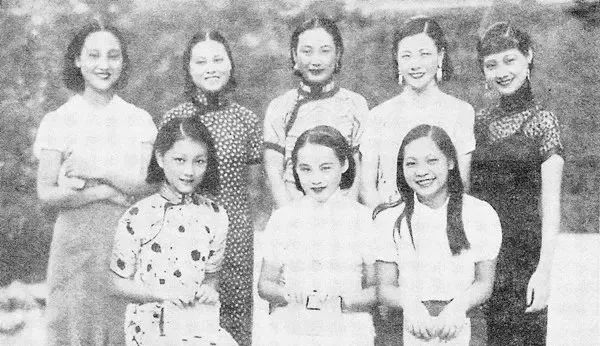
The back cover is a photo of eight female stars.
In order to cause a sensation in the entertainment industry at that time, Liangyou Company hosted a banquet for eight female stars on September 8, and the photos of the eight stars were immediately published in newspapers and magazines such as Shenbao, Human World and Film Illustrated, which spread all over the country. In the 1930s, the saying of "eight female stars" in Shanghai became popular.
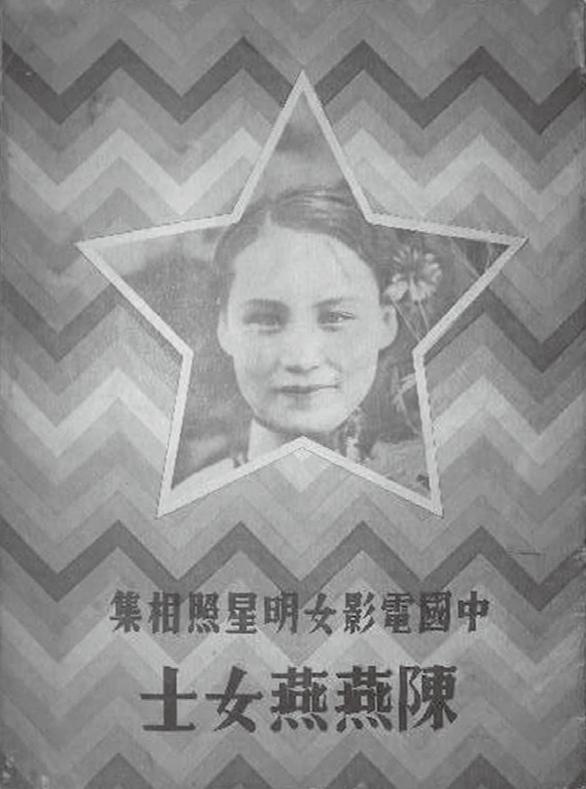
Each episode of "Photographs of Female Movie Stars in China" contains more than 20 photos of a female star, most of which are half-length photos, mostly posing, and a few photos of life. Dress in cheongsam, casual clothes, occasionally sportswear, and slightly sexy photos of wearing miniskirts, but more clothes are fashionable ladies’ clothes.
One episode of Hu Die received a bodybuilding sports photo with a tennis racket, but his posture was awkward. Obviously, he rarely played tennis. Ruan Lingyu is dressed in cheongsam, and there is also a photo with a tennis racket in her arms. It can be seen that tennis racket is a sports fashion prop designed for female stars to take pictures.
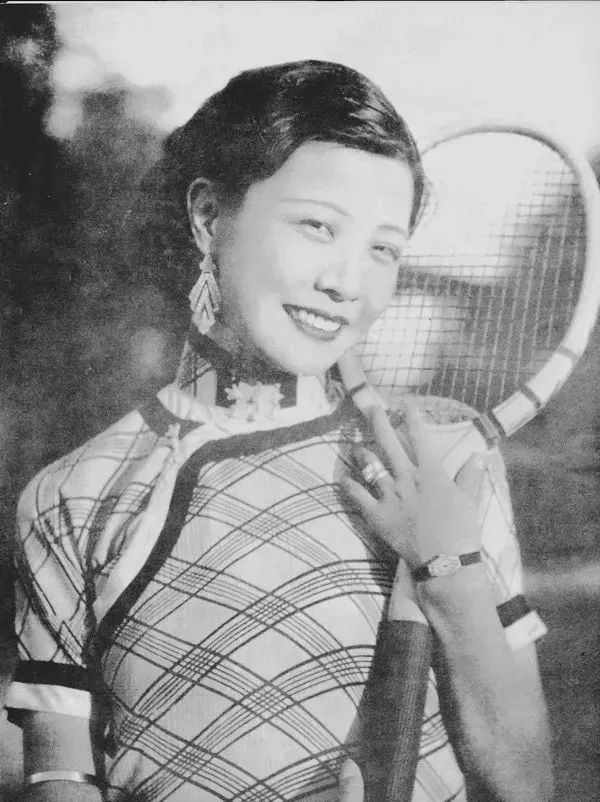
Photo by Chen Jiazhen
Generally speaking, "Photographs of Female Movie Stars in China" does not have the exposed and sexy style that the photos of Hollywood female stars in the same period often have, and the lady temperament with aesthetic sentiment is the actress image that the photographer tries to create.
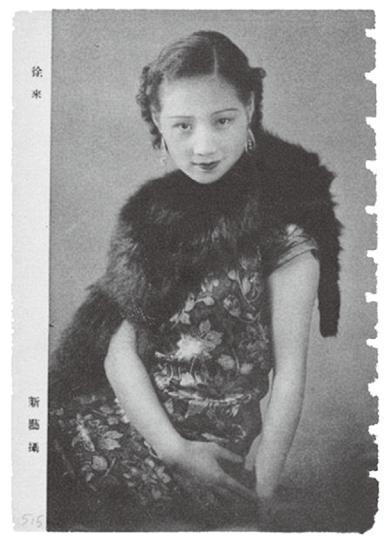
Film lovers among ordinary citizens and fans in idolize can enjoy the sweet images of female stars with the help of this photo collection, and project their subconscious daydreams in the world of simulacra through the photographer’s shooting lens.
An inescapable gaze of desire.
"Women in advertisements are not only objects to be stared at, but also objects to be bought and sold."
——Wykes
Ding Ling’s Dream Ke reflects the status of women as objects of desire in the city, and reveals the ubiquitous male eyes that make women hide.

The novel begins with the humiliation of a female student model, and behind it is the gaze logic of urban men’s eyes:
By the curtain, on the low couch covered with crimson Red Velvet, a model who hasn’t put on her outer clothes is silently wiping her tears; When I saw the eyes of this group of intruders trying to find out some facts, I fell down on the couch and my muscles trembled under a big shirt as thin as cicada.
It was Meng Ke, a female student, who bravely rescued this female model from the public eye.
After experiencing the modernity and glitz of the city, Meng Ke gradually changed from a "female student" to a "Modern Girl". Her eyes were gradually captured by the logic of "staring", and she increasingly recognized the urban entertainment and consumption space frequented by her cousins, and she became a "female star" with no choice, and participated in and shared the urban entertainment and consumption space in another way.
The novel ends like this:
In the future, I will keep forbearing and continue to go to this purely sensual society. I am used to that strange scene, and I can slowly be fearless and calm, which will make her forbearing stronger and greater, and make her endure very rude insults.
At present, there should be quite a few writers, dramatists, directors, critics who claim to be Shanghai, and poor underlings who shout for them in some kind of newspapers and magazines.
Everyone uses the words of "beautiful country" and "close the moon and feel ashamed of flowers" to hold this Lin Lang, who has always been forbearing, as an unprecedented female star on the screen, in the hope of getting satisfaction from her, or just getting a little superficial pleasure from this desire.
This kind of gaze full of desire has some unique characteristics in modern times, which is manifested in its close combination with modern city and modern technology, that is, it is generated as a "technical view" in modern urban culture.
Due to the progress of technology, this "technical view" is not the same as the time when Ximen Qing leered at Pan Jinlian’s "Golden Lotus" and Jia Baoyu paid attention to Xue Baochai’s wrist. Modern men can get the possibility and freedom to view women justifiably from various video media without facing women directly.
When modern urban women, especially some female movie stars, are attracted by the audience and readers in movies, magazines, advertisements, shop windows and such as "female star photo albums" through "technical" image media, the projection of instinctive desire is not directly directed against women’s bodies because they are separated from the scene being examined face to face.
Therefore, it is difficult for urban women to be conscious and alert to this observed object status, and they may even gradually get used to and succumb to this technical viewing situation, and even get great psychological satisfaction in the imagination that has attracted much attention.
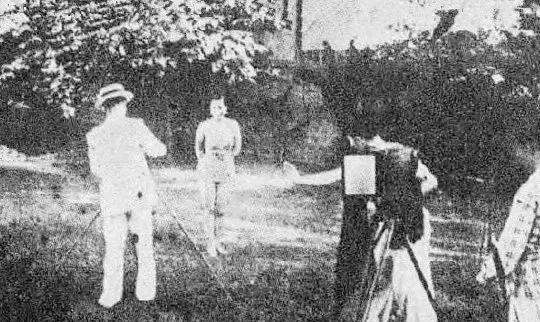
From the initial resistance of Meng Ke in Ding Ling’s works to "surprise and doubt", to "forbearance" and being able to "endure very rude insults", and then to the appearance of "Photographs of China Film Actresses", it is a process in which some modern female stars in China have become accustomed to "viewing" from vigilance and strangeness, and finally take the initiative to cater to and even please.
The dilemma of women’s liberation
"Women are not born, but made."
-Beauvoir
Whether it is Meng Ke who fell into the abyss of desire under the gaze of men, the "eight female stars" trapped in the cage of consumer culture in Shanghai, or the "celebrities" in Shanghai who are addicted to the flashy illusion of "spelling" today, it is very easy to criticize and accuse them of depravity, money worship, fragility and uncertainty.
However, as Beauvoir said, "Women are not born, but acquired", it may be more worthwhile for us to reflect on the social institutional problems behind women’s liberation dilemma and pursue new possibilities for women’s liberation.
In Meng Ke, Ding Ling did not discuss "what happened after Nora left" on a rational level, but contextualized the abstract slogan of "liberation" under the specific historical background of urban consumption culture, social gaze logic and female class differentiation, and painted a desperate picture through "visual intertextuality":
On the one hand, the slogan of women’s liberation is more and more "empty" because it can’t respond to the divided social situation; On the other hand, the newly established modern system has exhausted the potential of "liberation", but instead "institutionalized" the insult to women in the commercial environment.
Faced with this situation, how to find a new possibility of "liberation" for women is a question that Ding Ling kept asking but could not answer in the post-May 4th era.
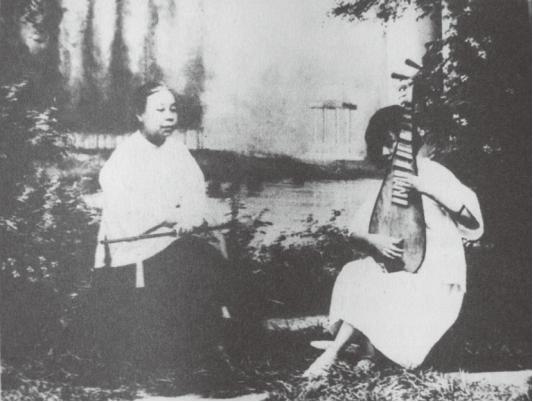
In fact, we still face the problems raised by Ding Ling during the May 4th Movement. The dilemma faced by Mengke is not a historical prospect. There are still many potential traps in women’s liberation today, such as the discipline of women’s bodies in a patriarchal society, the gaze of men, the trap of consumer culture and so on.
When we accuse Shanghai’s "celebrities" of being vain about money worship, we should also be alert to the bias of misogyny. When today’s women seem to have emerged from the surface of history and become half the sky, we should be more alert to the obstacles of some collective unconscious and social institutional problems left over from history to women’s liberation.
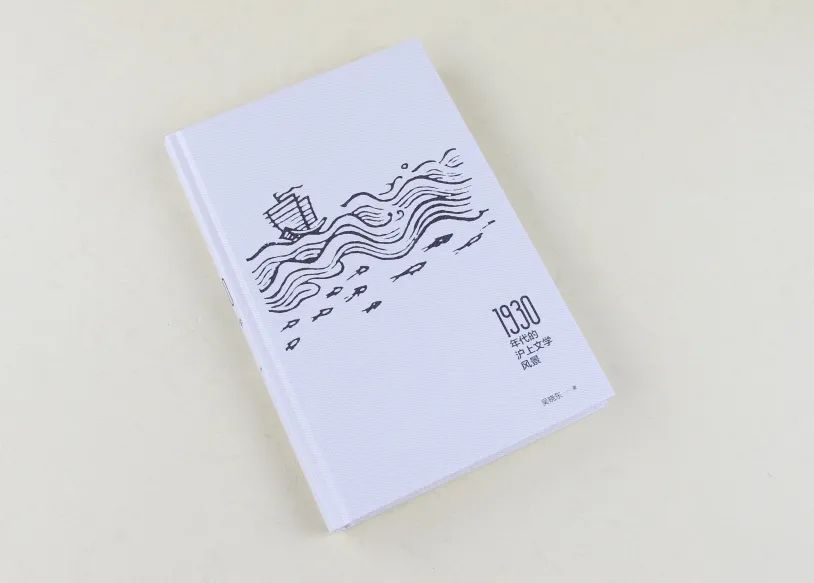
Editor: Ran Na Huang Hong
Viewpoint reference:
Literary Scenery in Shanghai in 1930s
Read the original text